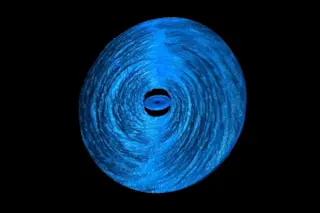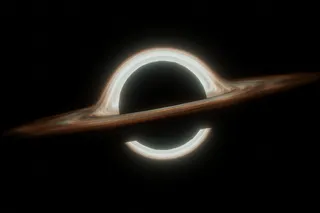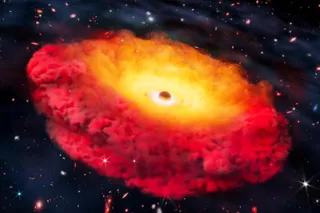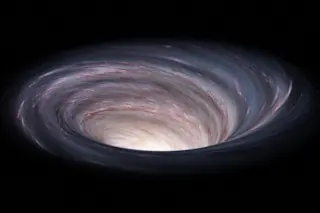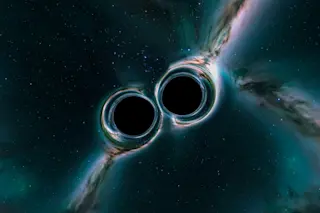A supercomputer at the Oak Ridge National Laboratory in Tennessee called Summit takes up the same floor space as a couple of tennis courts, and weighs more than a large commercial aircraft.
In certain cases, the machine can perform about a billion calculations per second, allowing it to simulate complex systems in physics, biology and other fields.
Recently, a team of astronomers used Summit to simulate a supermassive black hole and the swirl of matter (the “accretion disk”) that surrounds it, considering all of the attendant gas dynamics, magnetic forces and warping of space.
Their findings run counter to the traditional idea that a black hole dines on its accretion disk in a relatively leisurely manner. Instead, the team found that the simulated black hole scarfed down matter voraciously and effectively made a mess of its plate in the process.
(Credit: NASA/Illustration by Nima Abkenar)
NASA/Illustration by Nima Abkenar
The ...


